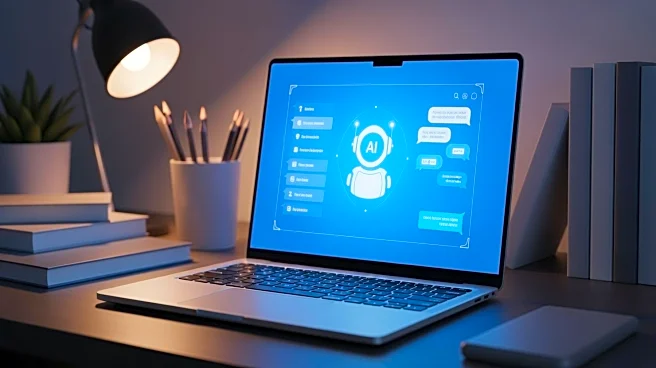What's Happening?
A recent survey by the Center for Democracy & Technology reveals that a majority of students are using AI chatbots like ChatGPT for various purposes, including academic assistance and personal relationships.
The survey found that 86% of students have used chatbots in the past academic year, with half utilizing them for schoolwork. Additionally, 42% reported using chatbots for mental health support or as a social escape. The findings highlight the growing integration of AI in students' lives, raising concerns about potential social and emotional disconnection.
Why It's Important?
The widespread use of AI chatbots among students signifies a shift in how technology is influencing education and personal interactions. While chatbots offer convenience and support, they also pose risks of dependency and reduced human interaction. The integration of AI in schools, supported by federal initiatives, aims to improve student outcomes but may inadvertently lead to social isolation. Educators and policymakers must address these challenges to ensure that technology enhances rather than hinders student development.
What's Next?
As AI continues to proliferate in educational settings, schools may need to implement guidelines and support systems to manage its impact on students. Discussions around the ethical use of AI and its role in education are likely to intensify, with potential policy changes to address privacy and mental health concerns. The balance between technological advancement and human connection will be a critical focus for educators and researchers.
Beyond the Headlines
The reliance on AI chatbots for personal and academic purposes raises questions about the future of human interaction and emotional development. The potential for AI to replace traditional social relationships may have long-term implications for societal norms and values. The ethical considerations of AI in education, including data privacy and the influence on student behavior, will be key areas of exploration.










